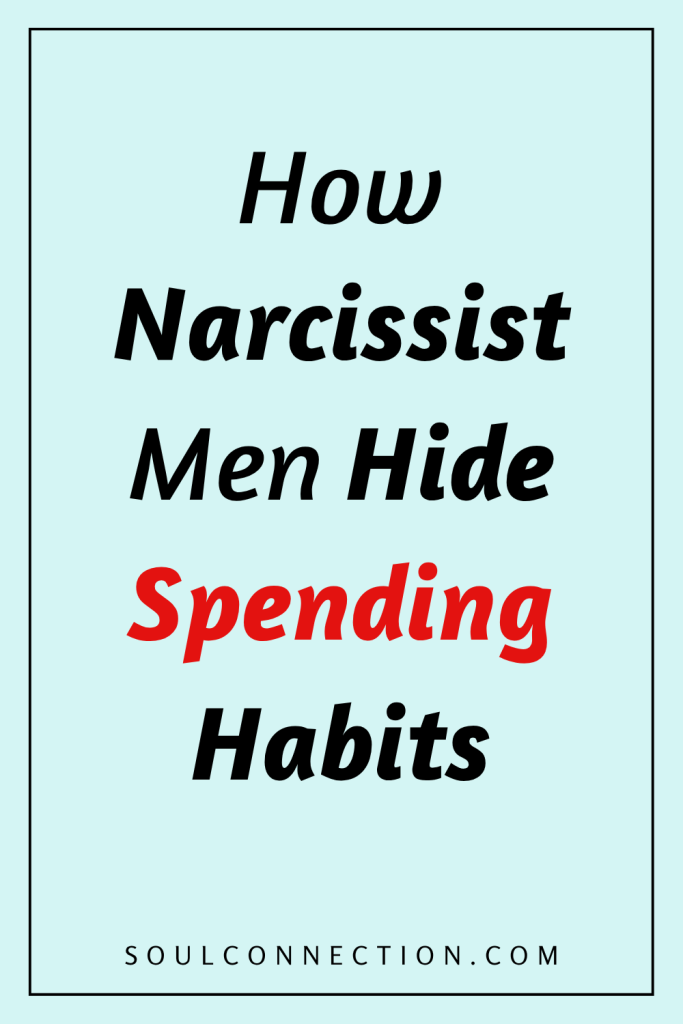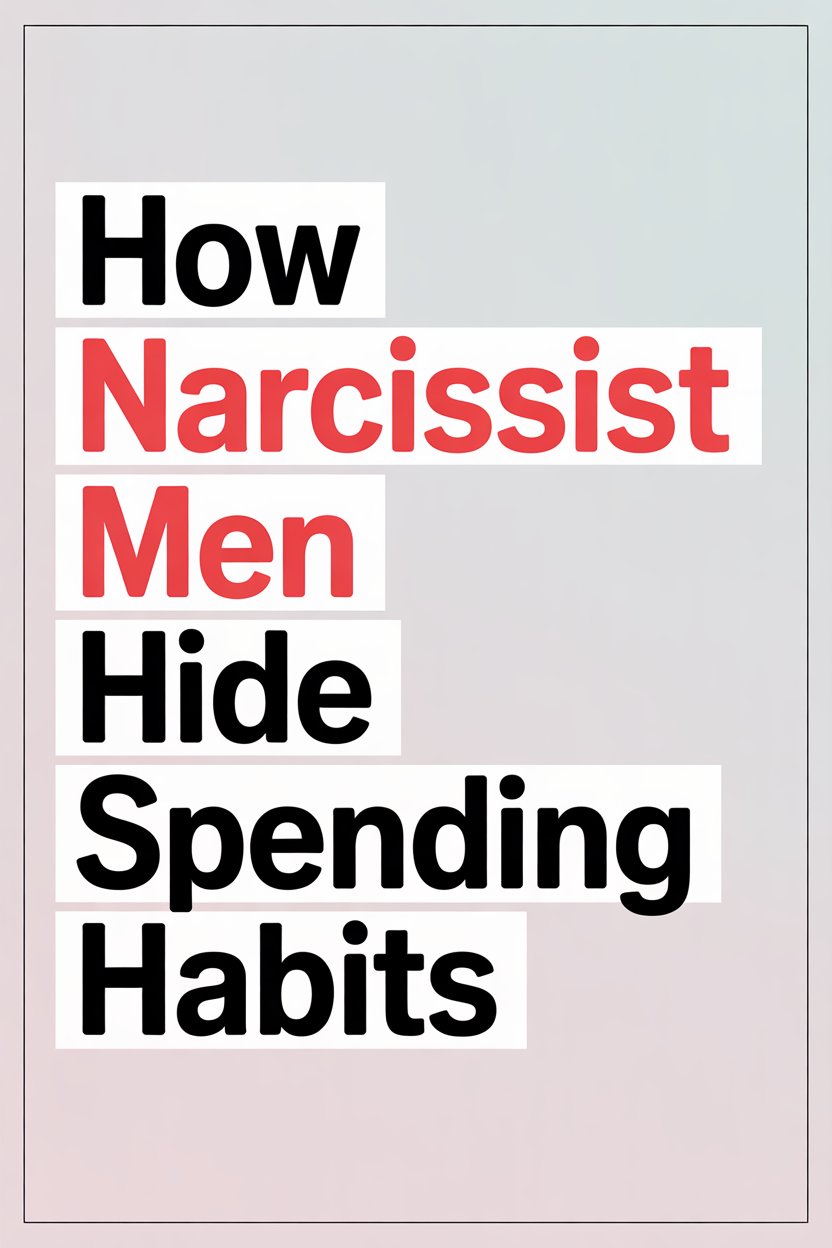“Trust, but verify.” Great advice, especially if you share a bank account with someone whose credit card bill looks like the GDP of a small nation. When your partner happens to be a narcissist, trust might not even make the starting lineup.
Let’s lift the velvet curtain on how narcissist men can be master escape artists when it comes to hiding their spending habits.
If you’re reading this with one eye on his new golf clubs and the other on your own missing savings, pull up a chair. Or a fainting couch—your call.
Financial Secrecy as a Personality Quirk
Narcissists love to present a certain image, and that image isn’t exactly “responsible saver.” It’s more “look at my shiny new toys and please ignore the growing credit card debt.”
Their need to impress, control, and, occasionally, feel a little more powerful than the rest of us mere mortals turns money into their favorite stage prop.
This means ushering in financial secrecy with all the subtlety of a marching band.
If you ask about a mystery Amazon package, you’re likely to get an answer with as much substance as an empty wallet—“Oh, that old thing? Had to replace something. No big deal.”
Translation: It was a big deal, and you probably paid for it.
Creative Accounting, Narcissist Edition
Some people keep receipts. Narcissists keep stories.
The average narcissist isn’t just hiding spending—they’re producing an entire Netflix mini-series about why the new sound system “practically paid for itself.”
Suddenly, money is coming from “a bonus at work”, “a mate owing him cash”, or “an investment you wouldn’t understand.” These tall tales aren’t about financial literacy; they’re about financial fantasy.
Meanwhile, any attempt at joint budgeting is treated like a request for state secrets. You might hear things like, “Relax, I’ve got it handled,” or “You wouldn’t get it, it’s complicated.”
Spoiler: It’s not complicated. He just doesn’t want you to know.
Hidden Accounts and Secret Stashes
Narcissist men have a PhD in hiding assets. There’s the “emergency” credit card (emergency being defined as “I want it”), the online bank account you’ve never seen, or the cash stashed in a shoebox in the closet behind his old footy trophies.
Bank statements might be delivered to a secret email, or he might spring for paper statements—sent to his office, naturally.
Ever notice he’s suddenly flush with cash just when you thought things were tight? That’s not magic. That’s money you never knew existed, carefully siphoned away.
Blame-Shifting and Gaslighting
Discover a suspicious purchase, and suddenly you’re the problem.
“Why are you snooping?”
“You’re so controlling.”
“Can’t I have anything for myself?”
Gaslighting around finances can make you question your memory, your math skills, or even your sanity. If you find yourself apologizing for noticing the car has new rims (again), take a breath. This is classic blame-shifting.
And if he suggests you’re nagging or being “paranoid,” it’s not about you—it’s about keeping you off the scent.
Playing the Hero
Narcissists love a good rescue fantasy—especially when they’re the dashing star. When their secret spending comes home to roost, expect an Oscar-worthy performance.
“Oh, the account’s overdrawn? Don’t worry, I’ll fix it.”
“Surprise! I covered the bills this month.”
“I made an investment for us.”
These grand gestures aren’t about teamwork. It’s about looking like the hero, even if he started the fire in the first place.
Sabotaging Joint Finances
Sharing finances with a narcissist is a bit like giving your house keys to a raccoon: chaos is coming, and it’s not wearing gloves.
You might notice “forgotten” expenses, unexplained withdrawals, or credit cards maxed out in your name. If you try to institute a budget, it’s treated like a personal affront.
They’ll undermine your efforts, dismiss financial planning as “boring,” and, if you dare suggest a joint savings goal, they’ll sigh like a teenager asked to clean their room.
Technology Enables the Secret Life
Apps, PayPal, crypto—technology is a narcissist’s playground.
Online purchases made under different usernames, Venmo requests from “old friends,” or even new accounts on fintech apps you’ve never heard of can become their private spending domain.
Ever wonder why your shared Netflix account suddenly recommends “How to Hide a Yacht Purchase”? Welcome to the world of digital subterfuge.
Selective Transparency
On rare occasions, a narcissist may appear to open the books. This is usually a staged event, showing you sanitized statements and carefully curated transactions.
The ugly stuff—the late fees, the payday loan, the mysterious “business expense”—never makes the highlight reel.
If your partner only reveals what makes them look good, you’re seeing a highlight reel, not the real game.
Distraction and Deflection
Catch a narcissist mid-spend and prepare for fireworks. Suddenly, he’ll bring up your splurge on shoes last year or question why the grocery bill was so high—anything to change the subject.
It’s not about groceries or shoes. It’s about keeping you looking anywhere except at his own transactions.
What To Do if You Suspect Hidden Spending
Spotting these tricks is only half the battle. Protecting yourself requires some practical steps—yes, even if you’d rather not become your own personal forensic accountant.
- Get copies of all financial records: Insist on full access to joint accounts, loans, credit cards, and any savings. Don’t settle for screenshots or summaries.
- Monitor your own credit: Keep an eye out for unexpected accounts or charges in your name.
- Set boundaries: No more “just trust me.” Transparency is the bare minimum in a partnership.
- Insist on budgeting together: If your partner dodges this, it’s a neon red flag.
- Seek professional support: Sometimes couples therapy or financial counseling can help. Sometimes, you’ll want your own financial advisor—one who isn’t also friends with your partner.
- Document everything: If things get messy, having a paper trail could protect both your wallet and your sanity.
When Enough is Enough
The reality is, financial deception can erode trust faster than a bad haircut. If you find yourself constantly on edge, double-checking bank accounts, and inventing new Excel spreadsheets for sport, something’s gotta give.
Your relationship shouldn’t feel like an episode of CSI: Credit Card Statements. Honest conversations and mutual respect are the only currency that matters.
If your partner can’t—or won’t—give those, it might be time to re-evaluate what you’re really “investing” in.
Remember, you deserve more than a seat in the audience of someone else’s one-man show. Demand a real partnership, with all the receipts.


